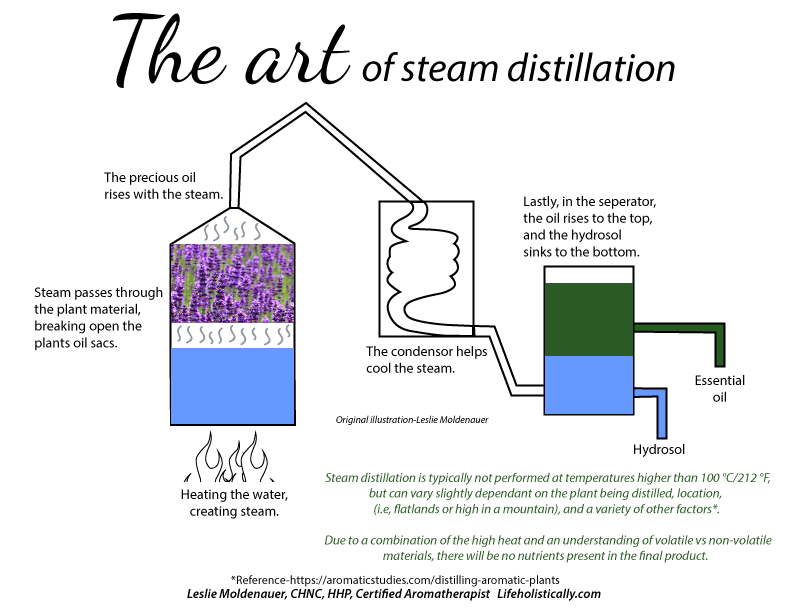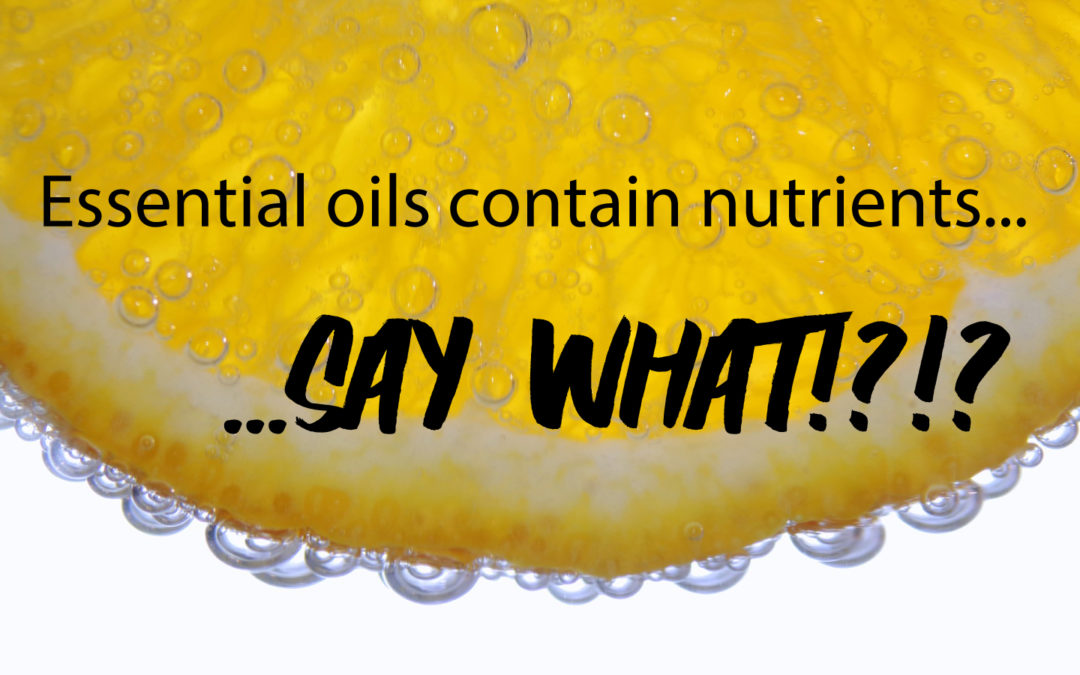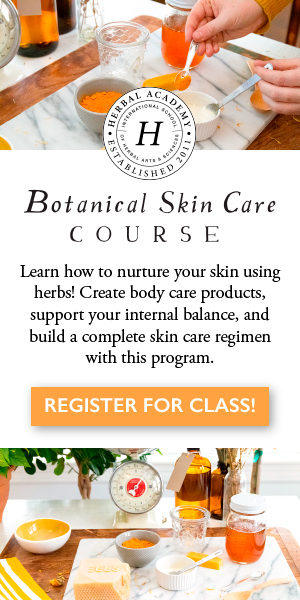When looking to learn the many deep and meaningful therapeutics of essential oils, you may find that the information is overwhelming. There are many misconceptions and myths that are shared. One of the biggest ones is in regards to essential oils providing nutrition or having the ability to be a supplement. Essential Oils-Do They Contain Vitamins and Minerals?
It becomes very challenging to know whom to believe when there are individuals and ‘health gurus’ claiming this to be factual, so I think it is important that I pull this myth apart. I have spent a great deal of time researching this topic. I will be simplifying and summarizing it for you today. It is time to put this idea to rest.
First things first, what are the definitions of a nutrient and a supplement?
According to the Oxford Dictionary, a nutrient is “A substance that provides nourishment essential for the maintenance of life and for growth” [1].
The Oxford Dictionary further states that a supplement is “A substance taken to remedy the deficiencies in a person’s diet” [2].
Now, to analyze if an essential oil has the ability to provide either.
There are two (main) ways to obtain essential oils, one is by extraction via steam distillation, the other is expressed via being cold pressed.
Steam Distillation
In the process of steam distillation, hot water passes through the still filled with plant material, and the oil sacs of the plants actually break open releasing their contents. At this stage, you have a vapor. This vapor is then cooled and the oils separate from the water. The temperature at which this is performed can vary dependent on the plant material being distilled, the atmospheric pressure as well as the altitude of the location that the plant is being distilled, but steam distillation is typically not performed at temperatures higher than 100 °C/212 °F [3]. Distilling is truly an art form.

Cold Pressing
Citrus fruits are typically cold-pressed (although there is a steam distilled variety as well). There is no heat involved at all; the fruits are pierced under mechanical pressure to extract the essential oil.
*I recommend purchasing your citrus fruit essential oils, whether steam distilled or cold-pressed organic if at all possible to avoid the possible myriad of pesticides sprayed onto the fruit.
Essential Oils-Do They Contain Vitamins and Minerals?
Vitamin C
One of the most popular myths is to place citrus oils into your water in the morning to obtain vitamin C and to perform other benefits much like an actual wedge of lemon would. But do citrus oils actually contain any nutrition?
Essentially all nutrients degrade at a very specific temperature. Vitamin C has been shown to degrade right around 70 °C [4]. Therefore, there will be virtually no vitamin C present in any steam-distilled essential oil.
What about the cold-pressed variety you ask? Because the cold-pressed variety of essential oil is not performed under heat, it is fair to say that some vitamin C could be present in the oil, although evaporation of the volatile nutrient will definitely come into play here are well. It is very important to remember though, the amounts will be insignificant, definitely not anything to write home about. If you are looking to obtain vitamin C as a true supplement, please consider the fruit, or better yet, take a true supplement, just make sure it is not the synthetic version from GMO corn, a whole other article in itself.
What lemon essential oil is rich in, whether steam distilled or cold-pressed is d-limonene. There are many exciting benefits to d-limonene, but the method of use is very misunderstood. Please do not drink your citrus oils. Look for articles in the resources to explain why this practice should be avoided.
Here are the nine foods highest in vitamin C (Citrus fruits do not even make the list):
Strawberries
Pineapple
Kohlrabi
Mango
Brussels sprouts
Kiwi
Papaya
Bell peppers
Broccoli [5]
In light of all of this, placing steam-distilled essential oils into our food should be looked at again as well. If we are hoping to obtain nutrition from them, we are out of luck. Ideally, the true herb is what should be used. If you are just looking for flavor, you could utilize one drop of oil, as long as you are cooking with a generous amount of healthy fat, but why would you want to if there is no true benefit to your health?
What about Other Water-Soluble Vitamins? (B’s)
Most users of essential oils know how volatile they are. According to the Oxford Dictionary, the definition of volatile is “(of a substance) easily evaporated at normal temperatures” [6]. All water-soluble vitamins, which include vitamin C as well as the B vitamins, are extremely volatile. Once put under heat, they degrade and are essentially destroyed [7]. You simply will not see any water-soluble vitamin in steam-distilled essential oil.
*All minerals are water-soluble as well.
Fat-Soluble Vitamins? (A, D, E, K)
So, now we know that all essential oils are volatile, therefore will evaporate quickly. Here is the key point for fat-soluble vitamins; they are non-volatile substances [8]. Non-volatile substances will not be present in steam-distilled essential oils.
An exciting area that I will be covering soon is CO2’s. There ARE non-volatiles in CO2’s, which are much closer to the profile of the actual plant.
So……what is the verdict? Do essential oils contain nutrients? Not a chance.
Closing
When you hear self-proclaimed essential oil gurus talking about the nutrition you will obtain via essential oils, come back to this article. It is just not factual. I do not share this to dispute the many therapeutic benefits of essential oils, as they are vast, proven, and exciting…..but they simply will not fill the gaps in your diet.
Like so many practices in life, I encourage you to become educated on the proper use of essential oils. When using them, please do so cautiously, understanding that there is often misinformation on the internet. You can be assured that I support only educated and proven resources. While essential oils should not be feared they should be respected and used properly to ensure the safety of the individuals using them.
Please note that I am not a medical practitioner. The content of this website is provided for general informational purposes only and is not intended as, nor should it be considered a substitute for, professional medical advice. Do not use the information on this website for diagnosing or treating any medical or health condition. If you have or suspect you have a medical problem, promptly contact your professional healthcare provider. By using this website, you assume full responsibility and liability for your own actions.
References
[1] Definition of a Nutrient. Retrieved from https://en.oxforddictionaries.com/definition/nutrient
[2] Definition of a Supplement. Retrieved from
https://en.oxforddictionaries.com/definition/supplement
[3] Distilling Aromatic Plants. Retrieved from https://aromaticstudies.com/distilling-aromatic-plants/
[4] Rahmawati, S., Bundjali, B. Kinetics of the Oxidation of Vitamin C.
Retrieved from http://www.researchgate.net/publication/228484005_KINETICS_OF_THE_OXIDATION_OF_VITAMIN_C
[5] 9 Foods With More Vitamin C Than An Orange. Retrieved from https://www.prevention.com/food/9-foods-with-more-vitamin-c-than-an-orange
[6] Definition of Volatile. Retrieved from https://en.oxforddictionaries.com/definition/volatile
[7] Vitamin Stability. Retrieved from https://www.dsm.com/markets/anh/en_US/Compendium/vitamin_basics/vitamin_stability.html
[8] The Fat-Soluble Vitamins: A, D, E and K. Retrieved from https://www.healthline.com/nutrition/fat-soluble-vitamins
Additional Reading
Shutes, J. How are essential oils extracted. Retrieved from https://www.naha.org/explore-aromatherapy/about-aromatherapy/how-are-essential-oils-extracted/
Fortification basics, stability. Retrieved from
https://www.dsm.com/content/dam/dsm/nip/en_US/documents/stability.pdf
BEFORE YOU GO! Remember to sign up for my FREE Facebook group! Hang out with me and THOUSANDS of other Essential Oil lovers looking to learn, click on to join Real Essential Oil Education Group!




